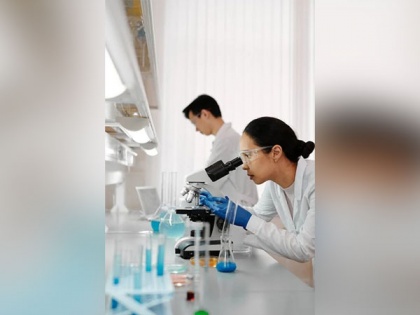Study finds number of hypothyroidism patients receiving treatment other than levothyroxine
By ANI | Published: June 20, 2023 08:33 PM2023-06-20T20:33:31+5:302023-06-20T20:35:09+5:30
Washington [US], June 19 : The use of thyroid hormones other than the commonly prescribed hormone medicine levothyroxine to ...

Study finds number of hypothyroidism patients receiving treatment other than levothyroxine
Washington [US], June 19 : The use of thyroid hormones other than the commonly prescribed hormone medicine levothyroxine to treat hypothyroidism, or underactive thyroid, is increasing, according to a study.
The findings of the study were presented Friday at ENDO 2023, the Endocrine Society's annual meeting in Chicago, Ill.
"This is significant because the long-term health outcomes of these treatments are not as well known as levothyroxine," said researcher Matthew Ettleson, M.D., of the University of Chicago in Chicago, Ill.
The thyroid makes the hormones triiodothyronine (T3) and thyroxine (T4). Hypothyroidism is the result of inadequate hormone production from the thyroid gland. The primary treatment is hormone replacement, most often in the form of synthetic T4 (levothyroxine).
Because hypothyroidism is common in the general population, levothyroxine is one of the top medications prescribed on an annual basis. Guidelines for the treatment of hypothyroidism have undergone some key changes over the last decade. Some clinical guidelines suggest a trial of adding synthetic T3 therapy if T4 alone does not adequately resolve symptoms.
In the new study, the researchers found that the proportion of hypothyroid patients treated with desiccated thyroid extract, or DTE (a natural form of thyroid hormone that contains T4 and T3), has doubled from 5% to 10% in the last decade.
The study also found that where a patient lives and how many physicians are nearby may influence whether a patient is treated with T4, T3 or desiccated thyroid extract.
The researchers evaluated thyroid hormone prescription data from a large, U.S.-based claims database from January 1, 2010 to December 31, 2020. They looked at how many patients received T4 alone; T3 therapy with or without T4; DTE with or without T4; and other therapy. They also evaluated statewide physician density and whether the patients were in urban or rural areas.
DTE and T3 prescriptions were not uniformly distributed throughout the United States, with higher rates in the West and Southwest regions. Residence in a state with higher endocrinologist density (3.0/100k population) was associated with a decreased likelihood of receiving T3 or DTE therapy. Residence in large central metro zones was associated with an increased likelihood of receiving T3 or DTE therapy.
"Differences in access to endocrine care may contribute to these disparities," Ettleson said. "It is important for physicians and researchers to monitor how these treatment decisions are affecting the health outcomes and quality of life of patients."
Disclaimer: This post has been auto-published from an agency feed without any modifications to the text and has not been reviewed by an editor
Open in app